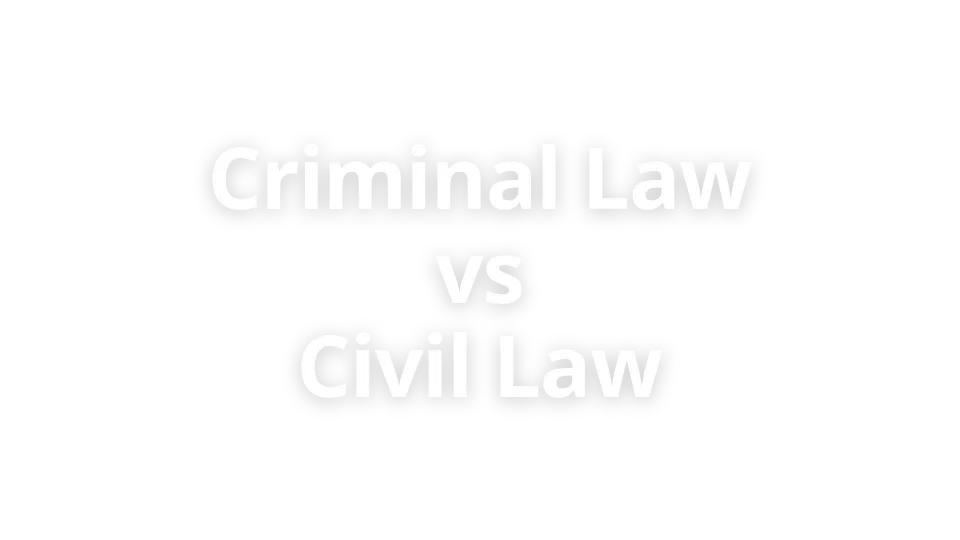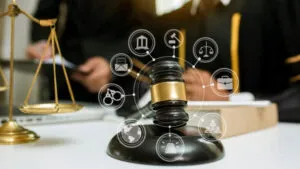Probable Cause
California Criminal Defense Attorneys
If you believe that the police lacked probable cause to arrest you, then you will want to get in touch with a criminal defense lawyer at My Rights Law right away. By hiring My Rights Law’s attorneys, you get a firm with substantial experience in winning cases like yours. We will clarify your legal options and aggressively defend you. Protect your rights by calling My Rights Law at (888) 702-8845 or completing our secure web form for your free consultation.
Being placed under arrest always feels unfair. But even if you’ve committed a crime, there are certain procedures that the police must follow to avoid violating your constitutional rights. Otherwise, certain evidence could be excluded from the case against you, leaving the prosecution without enough to pursue a trial. Finding probable cause violations by the police could help you get the charges against you reduced or even dismissed. Unless the police arrested you for a crime that you committed directly in front of a police officer, there’s no waste in reviewing your case for these types of errors. There could be jail time, fines, restrictions on your driver’s license and constitutional rights, and more on the line. A California criminal defense attorney can help you find those small holes in the prosecution’s case that could eventually turn into a big break.
What Is Probable Cause?
The fourth amendment[1]to the U.S. Constitution guarantees protection from unreasonable searches and seizures. There must be probable cause for a warrant to be issued for your arrest. California law[2] requires that a police officer either have witnessed you commit a crime or have probable cause to believe you committed a crime to arrest you. Probable cause[3] has an ambiguous definition, but it generally requires that there is a reasonable basis for placing you under arrest. Probable cause is a higher standard than reasonable suspicion[4], which is what a police officer must have to stop you for questioning or pull you over while driving. Probable cause is generally between reasonable suspicion and preponderance of the evidence, meaning there is a more than 50% chance that the crime occurred.
Was There Probable Cause When I Was Arrested?
It is hard to give a yes or no answer about probable cause violations without hearing your case’s specific facts. You may have been the victim of a police officer’s stereotyping or simply in the wrong place at the wrong time. It would help if you wrote down everything you remember about the arrest as soon as possible. Writing things down will help preserve memories that could potentially hold violations of your constitutional rights. You can then relay any concerns you have about the lack of probable cause to your attorney. Based on the facts at hand, your attorney can track down surveillance footage, dash and body cam footage, disciplinary records, and more that could bolster your defense.
A probable cause defense can be difficult because it is ultimately your word against the police. But with careful review and analysis, a skilled defense attorney may find a way to prove that the police lacked sufficient probable cause to place you under arrest. If your attorney can convince the court of that, your charges might be dropped, and you won’t even have to go through the ordeal of a prosecution. Otherwise, it can help your attorney win your case and keep you out of jail. Whether it’s a misdemeanor or a felony, you don’t want a criminal conviction on your record.
Examples Of Probable Cause Violations
Probable cause is relevant in all types of criminal defense cases. No matter what charges you’re facing, it’s worth reviewing the details surrounding your arrest for probable cause violations. Probable cause could potentially be violated in almost every type of criminal case. Probable cause violations could mean getting evidence obtained unlawfully excluded or your charges reduced or dismissed. Here are some examples of when police officers might not have had sufficient probable cause to place you under arrest:
- A police officer pulls you over to inspect you for driving under the influence with nothing but a hunch. You exhibit no signs of impairment, but the officer brings you into the station, where your chemical test shows trace amounts of marijuana. If you’re charged with DUI, you’ll want to emphasize probable cause when negotiating with prosecutors to reduce or drop your charges.
- A police officer believes you look like a suspect, follows you to your home, and searches you and your home. The officer finds paraphernalia, stolen property, or something else that causes you to be charged with a crime. The paraphernalia here was obtained unconstitutionally (e.g., no search warrants, no consent). A quality defense attorney can make sure you aren’t punished as a result of violations of your rights.
- You get in an argument with your significant other, and a law enforcement officer is called due to noise complaints. Your partner wants you to get arrested and shows the police a bruise they got from tripping a few days ago. They say you gave it to them during the argument. The officer mistakenly believes it is mandatory for him to place someone under arrest in all domestic violence disputes and brings you to jail. However, California law[5] only makes it mandatory for the police to arrest someone in a domestic dispute if they have probable cause to believe domestic violence occurred, which didn’t exist here.
- Someone in the area robs a store while wearing a black hoodie, gloves, and a mask. A few days later, the police see you wearing a black hoodie, arrest you and find something incriminating while investigating you further. With no other evidence, a black hoodie isn’t probable cause to arrest you for a crime. The evidence found after you were arrested without probable cause should be excluded.
Are There Exceptions To Probable Cause?
Because probable cause is so difficult to define rigidly, there are several circumstances in which the standards an officer needs to place you under arrest are lowered. These are times when using the lack of probable cause as an argument for your innocence may not be as effective. DUI checkpoints have been upheld as constitutional by the courts time and time again. They are viewed more as administrative screenings than searches and seizures. DUI checkpoints must be conducted neutrally but don’t require the same level of probable cause that the police would need to arrest someone walking down the street. Just because you were charged with DUI at a DUI checkpoint doesn’t mean you shouldn’t immediately begin working on your legal strategy- contact a California defense attorney as soon as possible. There could still be constitutional violations present in your case despite the arrest occurring at a DUI checkpoint.
Experienced California Probable Cause Lawyer
Everyone facing criminal charges deserves a zealous criminal defense attorney who will craft a defense strategy that can either leverage a favorable plea deal or secure a not guilty verdict. Depending on the charges against you, you could be facing jail time, fines, losing your job, and having a conviction on your criminal record. This will make it harder for you to find employment, housing, and more. You could even lose access to civil rights like voting, running in public elections, and owning a firearm. With the right defense attorney, you can avoid some or all of this. At My Rights Law, our experienced defense attorneys will explore every possible strategy to create a legal strategy that yields your ideal outcome. We provide comprehensive service that you can trust. Our lawyers are prepared to negotiate a plea deal or go to trial against a variety of California criminal charges. To learn more, call (888) 702-8845 or submit our secure web form to schedule your FREE initial consultation.
FOOTNOTES
[1] U.S. Const., amend. IV.
[2] California Penal Code 836.
[3] Cornell Legal Information Institute: Probable Cause.
[4] Cornell Legal Information Institute: Reasonable Suspicion.
[5] California Penal Code 836.








